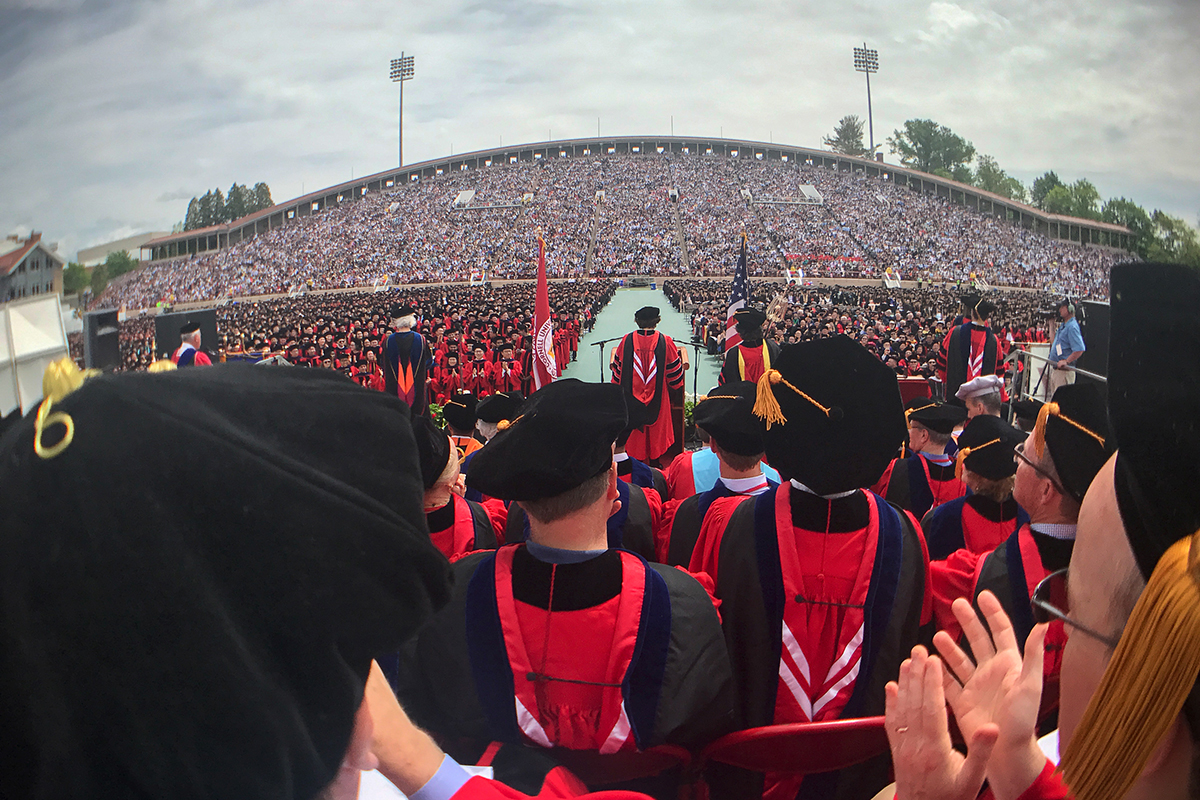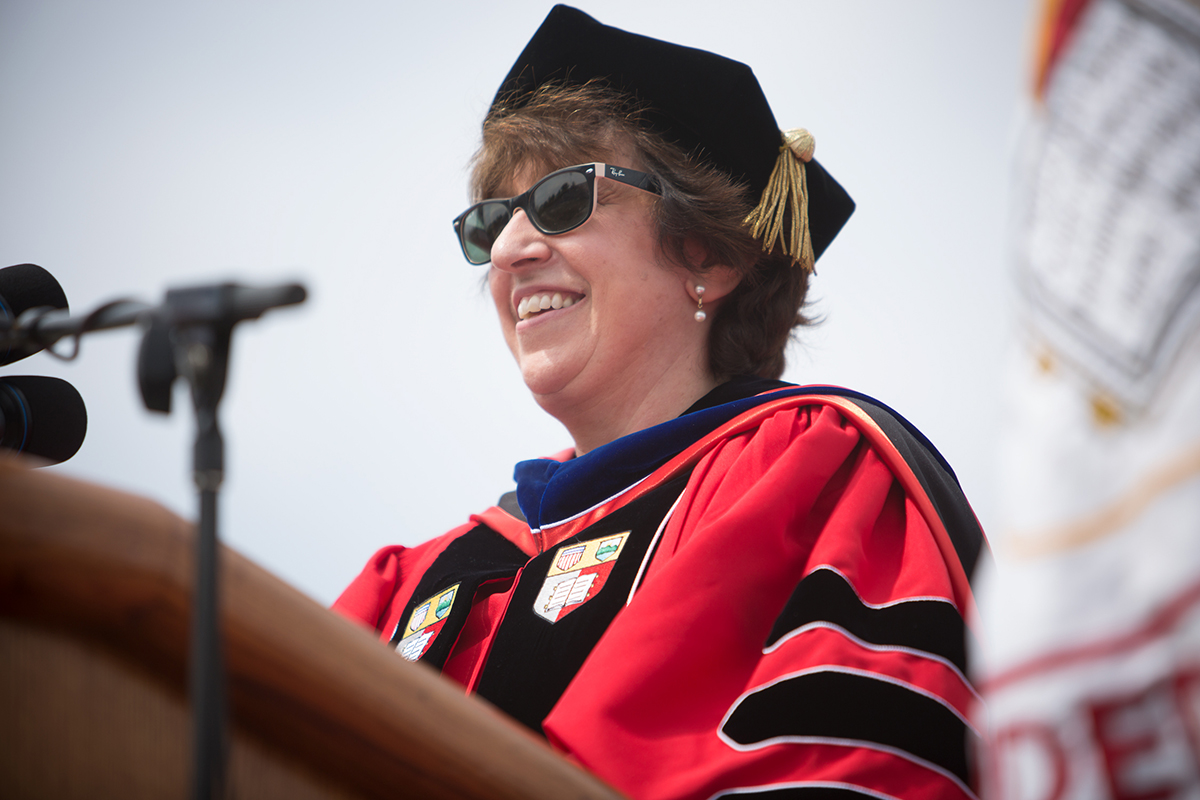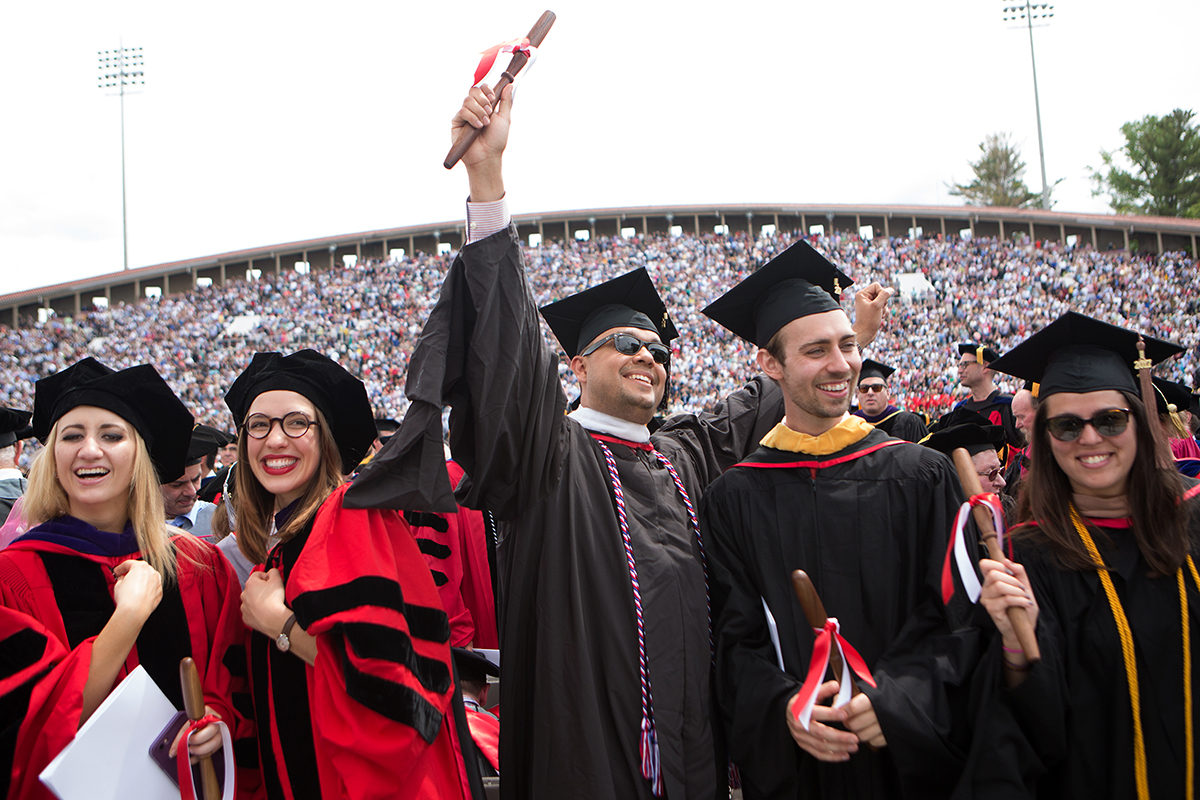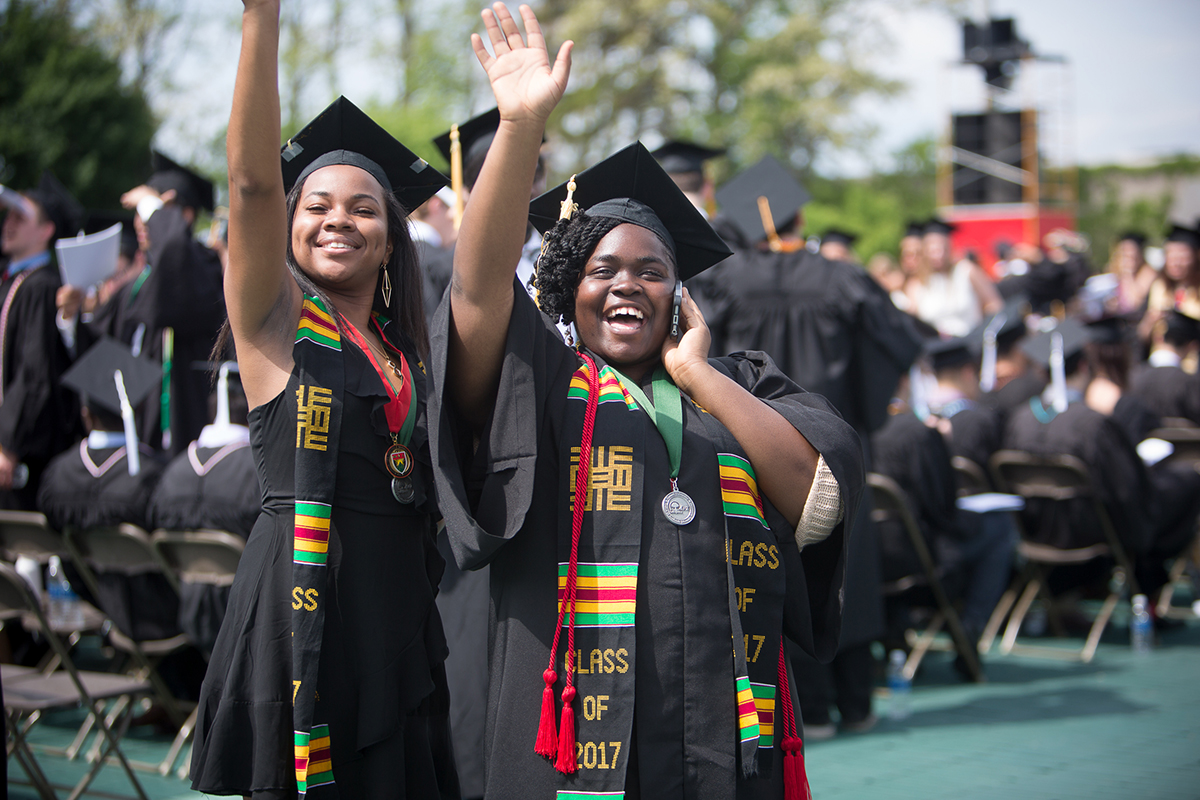Pollack to Class of 2017: Effect change by clarifying values
By Tom Fleischman

Urging the approximately 6,000 members of the Class of 2017 to be agents of change in the world by “clarifying your own values,” President Martha E. Pollack sent them off into that world during Cornell University’s 149th Commencement Ceremony, May 28 at Schoellkopf Field.
Degree candidates and their loved ones basked in warm sunshine for a commencement ceremony and conferring of degrees school by school.
Pollack, whose term as Cornell’s 14th president began April 17, began by thanking former Vice President Joe Biden for his entertaining and impassioned speech a day earlier, which “set a new standard for the Senior Class Convocation.
“In fact, I have to tell you that when the trustees hired me for this job,” she joked, “they neglected to tell me that my first major address as president would come on the heels of the one given by Joe Biden. Talk about a hard act to follow.”

Pollack termed commencement “a moment of transition for you, graduates.” Noting that such moments may call for big celebrations such as commencement, they are also “times for reflection – for looking backwards at what you’ve experienced and what you’ve learned, and looking forward, toward what you’ll do next, to your next adventure.”
In emphasizing the importance of leaving one’s mark on the world, Pollack related the story of Daniel Fried ’74, who recently retired after a 40-year career as a diplomat with the federal government. Fried served under six U.S. presidents, working mainly in Eastern Europe as well as Washington, D.C.
“Daniel Fried experienced many events that must have seemed quite improbable when he began in 1977: things like the victory of the Polish Solidarity movement, the fall of the Berlin Wall and the breakup of the Soviet Union,” she said. “As he reflected on such events in his retirement speech, Ambassador Fried said this: ‘I learned never to underestimate the possibility of change, that values have power, and that time and patience can pay off, especially if you’re serious about your objectives.’”

Pollack borrowed from Biden, who “counseled you not to underestimate the possibility of change” in his convocation address. “While you are graduating into a world with significant challenges,” Pollack said, “so too have previous generations of students, who have frequently met those challenges head on and made changes the world needed to be a better place.”
The president reminded the thousands gathered in the 102-year-old stadium of some of Cornell’s founding principles and values, including a commitment to discovery – “advancing, preserving, and transmitting knowledge and culture,” she said – as well as the search for the truth and the importance of freedom of speech and expression.
Pollack invoked the words of the late Elizabeth Garrett, who died of colon cancer on March 6, 2016, just eight months into her tenure as Cornell’s 13th president. Garrett, Cornell’s first female president, viewed the academy as a place where all ideas and arguments have a seat at the table.
“As the late President Elizabeth Garrett put it, ‘[A] university is about the fullest and freest expression of ideas and arguments. … Because that’s how we get closer to the truth,’” Pollack said. “‘We’re about reason, rationality, debate … if you disagree with someone, the answer isn’t to shut them down.’”

Pollack reminded all of the challenge posed by defending free speech – even speech with which one strongly disagrees.
“Doing so means that you must be willing to allow to be said things that you find offensive,” she said, “and that you must be prepared when necessary to stand up to refute such messages, and to explicitly and vigorously support those whose dignity may have been compromised by them.
“But it is through that vigorous defense, not through enforced silence, that we move forward,” she said, to more applause.

Pollack also highlighted diversity and egalitarianism, founding core principles of Cornell, built on Ezra Cornell’s goal of an institution “where any person can find instruction in any study.” She reminded the gathering of the words of Cornell’s first president, Andrew Dickson White – whom she happily noted was the first of six Cornell presidents to have come from the University of Michigan (she’s the sixth).
“Writing to a potential benefactor … White explained his intention ‘to secure a place where the most highly prized instruction may be afforded to all – regardless of sex or color,’” Pollack said. “What a radical idea that was in the 1860s.”
And while “we haven’t always gotten it right” in terms of inclusivity, she said, “a commitment to egalitarianism has been there from our beginning, and it remains a core value of Cornell.”
Pollack also touched on respect for the natural environment, and Cornell’s commitment to environmental protection and sustainability.
“I don’t think many people can spend time on the Ithaca campus without being moved by this beautiful land, kept faithfully for so many generations by the Cayuga people, upon whose ancestral home this campus sits,” Pollack said. “The Haudenosaunee, the confederacy that includes the Cayuga people, have an ancient set of principles – the Honorable Harvest – that requires the enjoyment of nature’s bounty in a sustainable way. This same principle is also important to Cornell.”
Pollack restated her call that graduates: “think carefully about the values that have been central to your experience over the past four years … understand what your own values are, because ‘values have power,’ and you can only harness that power if you’re clear about your values.”
She urged patience in the drive to change the world, and for new graduates to “find joy in what you do.”
Media Contact
Get Cornell news delivered right to your inbox.
Subscribe